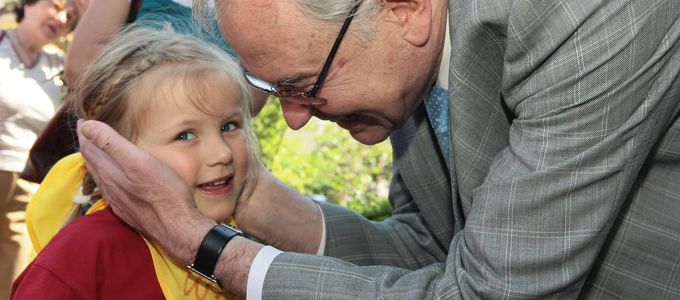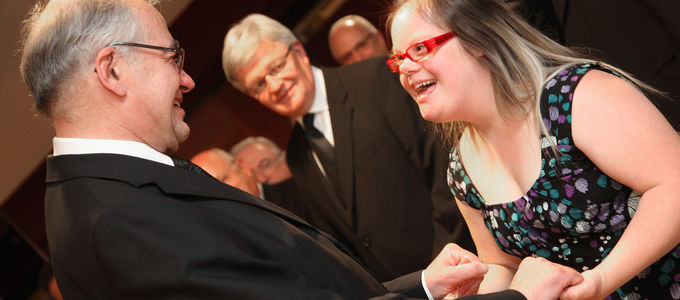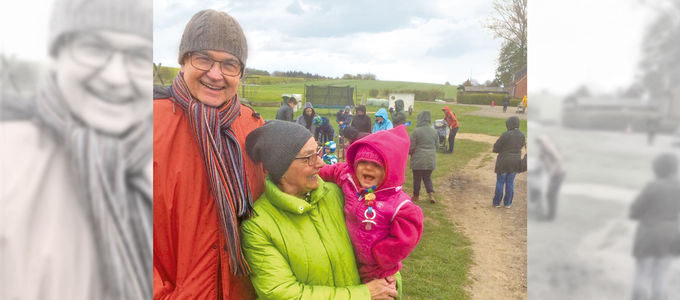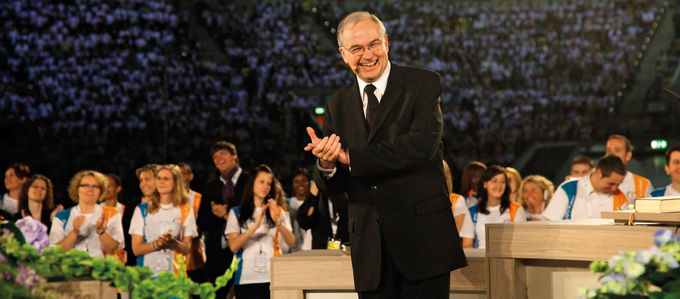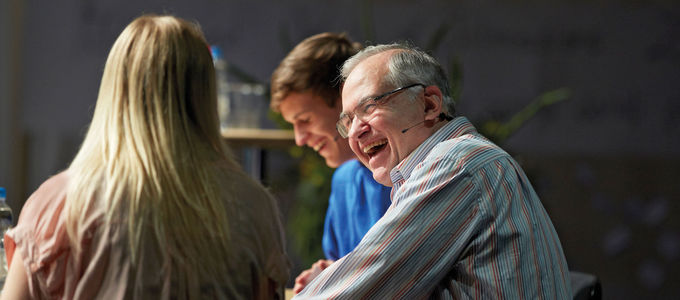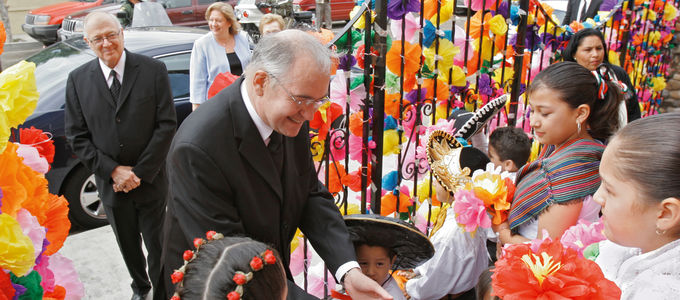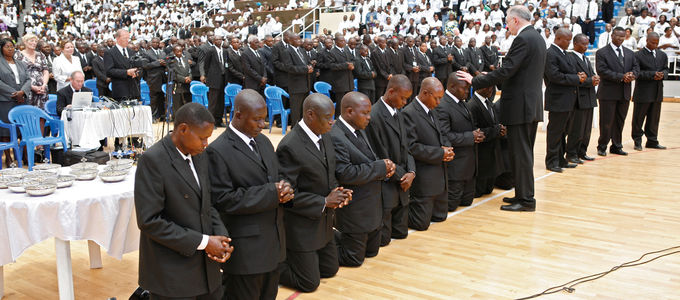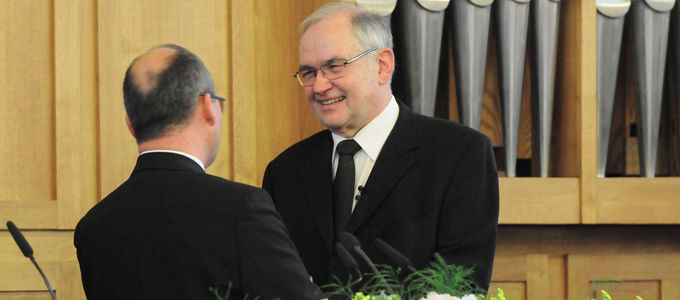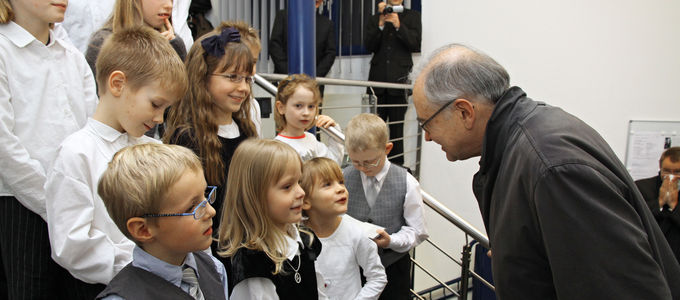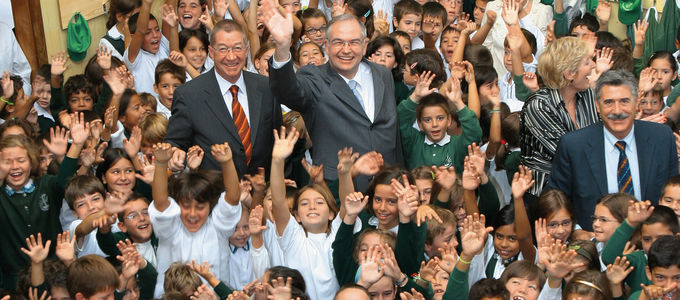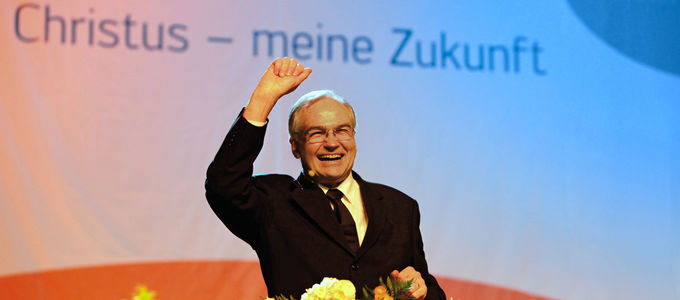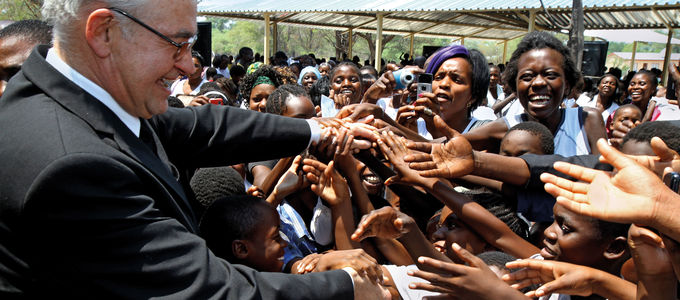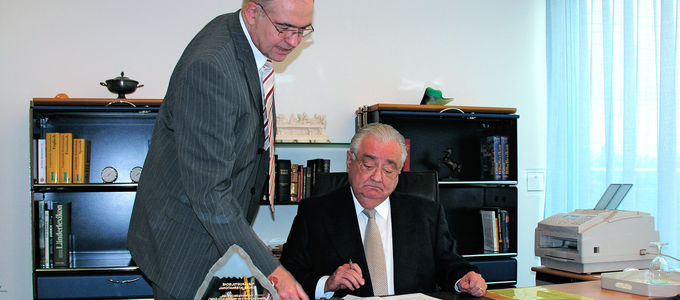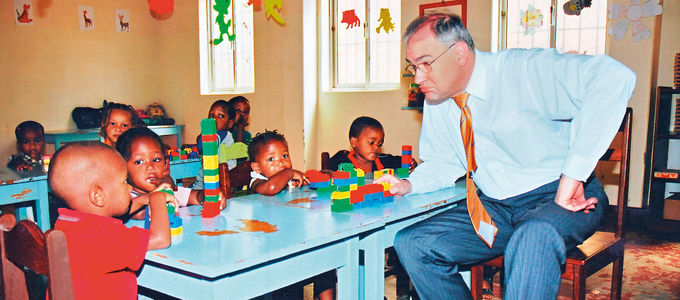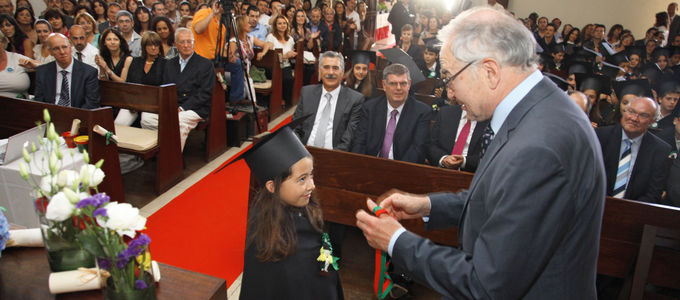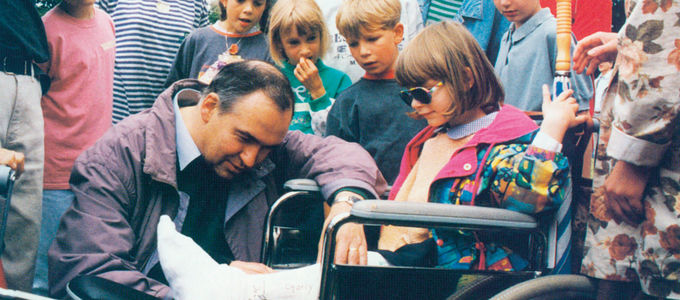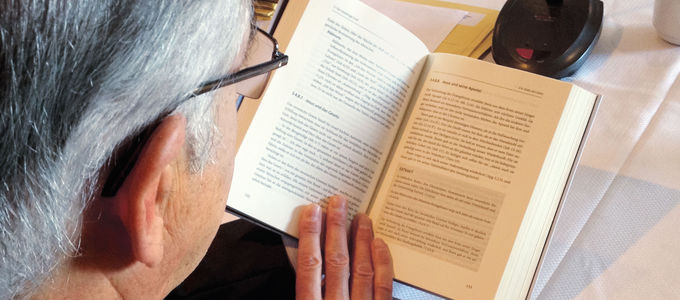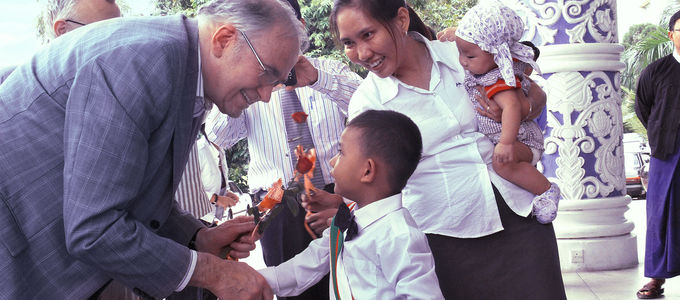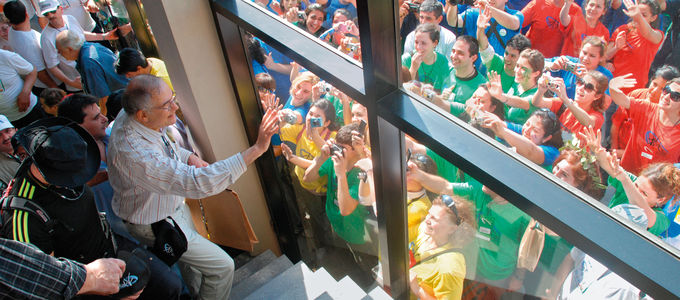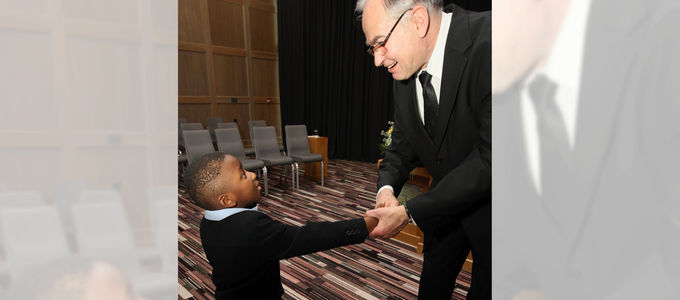
He makes no fuss about his person. So why bother with an article on his seventieth birthday today? Because he was Chief Apostle? And because he carried out this ministry in a very special way? And because he is a very special person who enjoys being with people and who brings people together. We are talking about Wilhelm Leber.
Sometimes it is the less conspicuous moments in life that say a lot about a person. Pentecost 2013 in Hamburg: Chief Apostle Leber has just been retired. Together with his successor he makes his way into the sacristy. On his way out of the church hall he notices a young man in a wheelchair. He knows him and stops to talk to him. “He is my friend,” he says. Before he moves on he thanks the young man’s caregiver for all she does for him.
In his biography he gives a near perfect description of the special character of his time in ministry. From 2005 to 2013 he guided the New Apostolic Church through turbulent times: a conception of baptism, the Divine Service Guide, the creed, our liturgy—the list of innovations is long.
Embraced with heart and reason
His most important work was surely the Catechism. The first fundamental documentation of the New Apostolic faith had been initiated by his predecessor, Richard Fehr. But when it was time to bring the representatives of the various views together and find a common denominator it was up to Wilhelm Leber to perform the task of Chief Apostle and preserve the unity in the circle of the Apostles.
He succeeded in this precisely because his style of leadership was anything but authoritarian. Wilhelm Leber had an ear for everybody, even if the manner in which he was sometimes consulted left something to be desired. He, a doctor of mathematics, weighed matters, questioned things and himself, and corrected his own position. For some this back and forth was too fast, but in the end, he was able to embrace almost all of them—with heart and reason.
A people person
He managed to drive some of the District Apostles to near despair because he upset their carefully planned schedules. He would take all the time in the world to speak with brothers and sisters after divine services. The bus with the Chief Apostle’s party on board had to drive on ahead and the Chief Apostle followed later by car.
Saying goodbye to members after a divine service could take hours. He also spent hours responding to letters. That was his way of keeping in touch with the members. “If you are in touch with many you will notice exactly how brothers and sisters think. It was always my endeavour to take every single one by the hand and to respond so that he gets some feedback,” he said.
A detour to reconciliation
The most painful phase of his time in ministry was the time following the so-called information evening in 2007. The historical assessments regarding the schism in the Rhineland (Germany) in the 1950s had caused quite an uproar. After two years of cultivating personal contacts he decided to approach the United Apostolic Church in public: “Mistakes were made on our side too,” he said at the European Youth Convention in 2009. “We extend our hand in reconciliation.”
He cleared the way shortly before his retirement by releasing a statement regarding the so-called message. Chief Apostle Johann Gottfried Bischoff had prophesied the return of Jesus Christ during his lifetime, and had died in 1960. For a lack of adequate biblical substantiation this message should not have been raised to the status of a dogma, Chief Apostle Leber clarified in May 2013. He apologised to all who had suffered as a result.
An active retiree
While in retirement already, Wilhelm Leber still worked on the formulation of the Reconciliation Statement—both for the one that was signed in the fall of 2014 in the Rhineland and for the one which was signed at the beginning of this year in the eastern part of Germany.
Otherwise, the retired Chief Apostle has taken a seat in the pew. He is happy not to have to travel so far any more and to just be able to sit in divine service and listen. He sings in the choir, plays the organ, and is part of the cleaning team.
One thing is sure. He still has this special way with people. A situation in the Congo illustrates this well. A crowd of 30,000 people were waiting for the arrival of the Chief Apostle. He waved to them. All of sudden he grabbed his left elbow with his right hand and raised it. This was intended for a sister who had her left arm in a cast, an observer noted. “Soulcare for me means recognising among thousands who is in need.”






